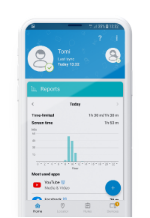PlayStation, developed by Sony, is not only a gaming console, but also a networking tool. Kids can become part of international or local gaming communities, or chat while playing. The whole gaming subculture can be beneficial to teenagers. They might feel included and acknowledged in some peer groups. Especially children who feel socially excluded at school or in their neighborhood might find valuable social relationships in the gaming community.
Nevertheless, there are several aspects of gaming that need to be handled responsibly. From the console settings to the purchases of new games and even choosing a nickname. What should you watch out for? Here are a few tips that can also be applied to other gaming platforms such as Nintendo and Xbox.
Set up the console together
When it comes to dealing with brand new technology, many children are a step ahead of their parents. So it may seem to make sense that they would be able to set up their PlayStation themselves. However, they tend not to be that cautious, or to consider potential threats or cybersecurity risks. Thus, before your kid starts gaming, make sure you are aware of all the possibilities and functions of the game console, and that it is set up in a way that corresponds with your youngster’s age. Explain each step you take so that the kid understands why certain rules must be in place.
Set up the main account and sub-account(s)
If your child is under 18, they cannot create a main account, only a sub-account to a main account belonging to a player who has reached adult age. As such, you will first need to create your own account in the PlayStation Network, from which you can manage your child’s account. You can add other accounts too – altogether, there can be up to six sub-accounts.
Choose a clever nickname/ID
When setting up the sub-account, your child will choose an online ID, under which they are then visible across the entire PlayStation Network. An ID such as "JasmineHoffmannJH" reveals far too much. We recommend you encourage your child to use an abstract username such as "Warrior Princess999" or "Matchwinner4711" – a name your offspring can identify with. Also, setting up strong passwords and a two factor verification on both your main account as well as the sub-accounts is key. Here’s how to create one.
For younger kids, disable the chat
When chat is locked, your child cannot communicate with others via audio or video, and are unable to post information from the PlayStation Network to Facebook. Nevertheless, written messages can still be exchanged using the "Group Messages" feature, which allows children to socialize. Switching off the chat lowers the possibility that your child will post sensitive content on social networks, or encounter hate speech in audio/video conversations with other players. Don’t forget to explain why you’ve disabled the chat and what benefits this brings. By sharing this with your child, you increase the chances that they will accept the rules.
What about teens?
Most social networks can only be used by individuals who are more than 13 years old. If your kid has passed the age limit, or you’ve agreed on certain rules even though your child is younger than that, you may discuss the issue with them and allow the chat. Either way, first teach your kid how to behave online, and explain they can share with you any situation they find disturbing. Also, sum up the most effective reactions to hate speech. “Before you expose your kid to new technology, pay attention to preventive learning. Thanks to which, you can prevent potential harm when facing risky activities such as gaming on playstation,” adds psychologist Jarmila Tomkova.
Set a monthly playtime and spending limit
This allows you to limit how much time and money your children spend on digital content available through the PlayStation Network. For younger kids, it is recommended that you witness any purchase. The children's expenses go hand in hand with the balance on the parents' main account – if there is no credit on the main account, no purchases are possible, regardless of the spending limit.
Create an age-appropriate environment by using Parental Controls
It is worth using Parental Controls, so that every account on the PlayStation can be set to allow only age-appropriate content. To make sure your kids only play games that correspond to their age, follow the PEGI ratings, which evaluate the minimum age for each game. Parental controls also allow you to limit playtime, chat, messaging and content sharing.
Prevent your child from changing Parental Controls
Once you’ve set up all necessary restrictions on Parental Controls, make sure your child can’t change the settings. Set a console restrictions passcode and a login passcode that will be known only to you. Also, disable the guest log in. Find out how to proceed step by step for each generation of the console.
General rule: Communicating is more important than forbidding
Constructive parent-child conversations can be more effective than blindly set orders and rules. So talk with your child, ask them their opinion, and when you feel like it, play some games with them to get yourself a better overview of what the gaming environment is like. Through this, you build mutual trust and understanding, which is the best precondition for making the PlayStation – and any gaming console – a safe and fun virtual playground.


